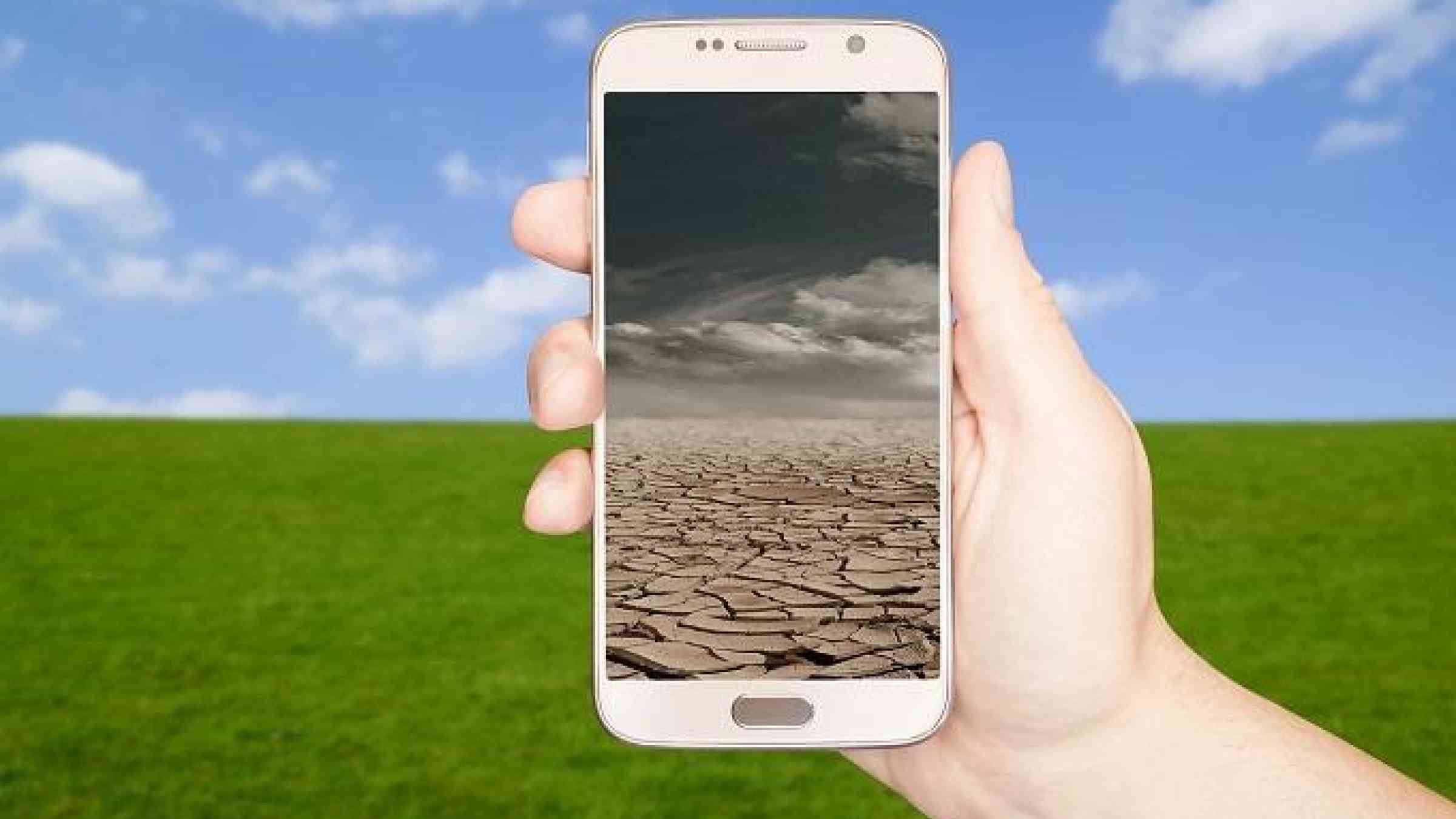USA: Stanford research shows how uncertainty in scientific predictions can help and harm credibility

The ways climate scientists explain their predictions about the impact of global warming can either promote or limit their persuasiveness.
By Melissa de Witte
The more specific climate scientists are about the uncertainties of global warming, the more the American public trusts their predictions, according to new research by Stanford scholars.
But scientists may want to tread carefully when talking about their predictions, the researchers say, because that trust falters when scientists acknowledge that other unknown factors could come into play.
In a new study publishing Oct. 14 in Nature Climate Change, researchers examined how Americans respond to climate scientists’ predictions about sea level rise. They found that when climate scientists include best-case and worst-case case scenarios in their statements, the American public is more trusting and accepting of their statements. But those messages may backfire when scientists also acknowledge they do not know exactly how climate change will unfold.
“Scientists who acknowledge that their predictions of the future cannot be exactly precise and instead acknowledge a likely range of possible futures may bolster their credibility and increase acceptance of their findings by non-experts,” said Jon Krosnick, a Stanford professor of communication and of political science and a co-author on the paper. “But these gains may be nullified when scientists acknowledge that no matter how confidently they can make predictions about some specific change in the future, the full extent of the consequences of those predictions cannot be quantified.”
Effects of communicating uncertainty
Predicting the future always comes with uncertainty, and climate scientists routinely recognize limitations in their predictions, note the researchers.
“In the context of global warming specifically, scientific uncertainty has been of great interest, in part because of concerted efforts by so-called ‘merchants of doubt’ to minimize public concern about the issue by explicitly labeling the science as ‘uncertain,’” said Lauren Howe, who was a postdoctoral scholar at Stanford when she conducted the research with Krosnick and is first author on the paper.
“We thought that, especially in this critical context, it was important to understand whether expressing uncertainty would undermine persuasion, or whether the general public might instead recognize that the study of the future has to involve uncertainty and trust predictions where that uncertainty is openly acknowledged more than those where it is minimized,” Howe said.
To better understand how the public reacts to scientists’ messages about the uncertainties of climate change, the researchers presented a nationally representative sample of 1,174 American adults with a scientific statement about anticipated sea level rise.
Respondents were randomly assigned to read either a prediction of the most likely amount of future sea level rise; a prediction plus a worst-case scenario; or a robust prediction with worst-case and best-case scenarios, for example: “Scientists believe that, during the next 100 years, global warming will cause the surface of the oceans around the world to rise about 4 feet. However, sea level could rise as little as 1 foot, or it could rise by as much as 7 feet.”
The researchers found that when predictions included a best-case and worst-case scenario, it increased the number of participants who reported high trust in scientists by 7.9 percentage points compared with participants who only read a most likely estimate of sea level rise.
Changes in environmental policies, human activities, new technologies and natural disasters make it difficult for climate scientists to quantify the long-term impact of a specific change – which scientists often acknowledge in their predictions, the researchers said. They wanted to know if providing such well-intended, additional context and acknowledging complete uncertainty would help or hurt public confidence in scientific findings.
To find out, the researchers asked half of their respondents to read a second statement acknowledging that the full extent of likely future damage of sea level rise cannot be measured because of other forces, such as storm surge: “Storm surge could make the impacts of sea level rise worse in unpredictable ways.”
The researchers found that this statement eliminated the persuasive power of the scientists’ messages. When scientists acknowledged that storm surge makes the impact of sea level rise unpredictable, it decreased the number of participants who reported high trust in scientists by 4.9 percentage points compared with the participants who only read a most likely estimate of sea level rise.
The findings held true regardless of education levels and political party affiliation.
Not all expressions of uncertainty are equal, Howe said: “Scientists may want to carefully weigh which forms of uncertainty they discuss with the public. For example, scientists could highlight uncertainty that has predictable bounds without overwhelming the public with the discussion of factors involving uncertainty that can’t be quantified.”